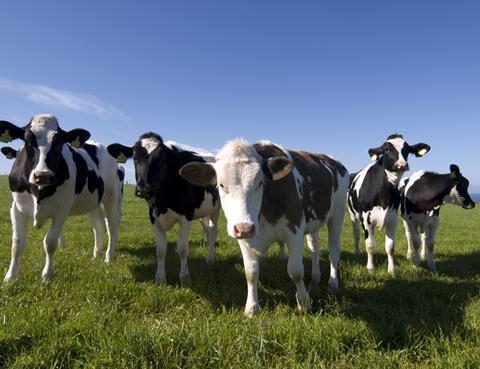
Some of the world’s largest dairy companies have for the first time committed to disclosing their methane emissions at the UN’s climate conference on Tuesday.
Nestlé, Danone, General Mills, Kraft Heinz, Bel Group and Lactalis all signed up to the Dairy Methane Action Alliance (DMAA) pact, with a pledge to disclose annual emissions from their dairy supply chains and “create and implement a comprehensive methane action plan”.
Agriculture accounts for nearly 40% of human-caused methane emissions, the majority of which comes from livestock, according to the Environmental Defense Fund (EDF) – the non-profit organisation mediating the group. The six dairy giants represent more than $200bn in revenues.
“Collective action on methane today will avoid the worst impacts of climate change, and we’ll see the difference in our lifetimes,” the EDF said in a statement.
“These corporations have stepped forward to set a new standard for accountability, transparency, and ambitious climate action within the food industry.”
Methane is one of the most potent greenhouse gases, with 80 times the warming power of CO2 in the first 20 years after it enters the atmosphere.
Read more: Danone announces plans for big methane emission reduction by 2030
But it hasn’t always taken centre stage in sustainability conversations in the same way carbon emissions have.
Campaigners have long called for meat and dairy powerhouses to make efforts to measure and reduce their methane emissions.
Nusa Urbancic, CEO of Changing Markets, said the commitment by dairy companies to report on their methane emissions was “a step in the right direction”.
“The way the commitment looks now is that consumer-facing dairy companies are sending a strong signal to the market that methane is important and that it requires a separate approach.”
She added: “This must be quickly followed with clear targets for methane reductions and a plan to deliver on them if it is to have an impact.”
However, Urbancic noted it had been a “big disappointment” to see dairy giants like Arla, Fonterra and Dairy Farmers of America “dragging their feet” and “opting out of action on their main source of emissions”.
The Global Methane Pledge, which was launched at COP26 in the UK to catalyse action to reduce methane emissions by 30% by 2030, has now been signed by 160 governments.
But not many companies had similarly ambitious plans currently, Urbancic said, with Danone “still the only one with commitment at approximately that level” – though the French company’s methane reduction target “only applies to their fresh milk supply”, she pointed out.
Henri Bruxelles, Danone’s chief sustainability and strategic business development officer, said: “As a leading dairy company, Danone is committed to reduce methane emissions from fresh milk 30% by 2030, and to elevate the role of dairy as a solution for health, nature and communities.
“We are convinced that we can deliver on this ambition by working with other dairy players and partners to set the bar high, develop tools and scale best practices. This is what the Dairy Methane Action Alliance is about.”
The EDF is calling on other companies in the global dairy supply chain to join the alliance to help “expedite a global shift to climate-smart dairy – and deliver larger impact and scale”.
“Together we can support farm economies, enhance global nutrition access, and make supply chains more resilient”, said EDF president Fred Krupp.
“This historic group represents the leadership we need not just from dairy companies, but from food producers everywhere. Now, the hard work begins to put words into action to meet these milestones – and it’s time for others in the dairy industry to join us.”
Read more: The Oxford study on meat emissions misses the point
Nestlé global head of ESG operations and deployment, Antonia Wanner, commented: “By joining DMAA, we hope to encourage broader industry co-operation on this important agenda, sharing our insights and learning from others as we make progress towards our goals.
“Nestlé’s net-zero roadmap tackles all types of greenhouse gas emissions, including methane. We are working with farmers and our suppliers to find practical and affordable ways to take action now.”
David Shaw, Kraft Heinz international director of ESG, added: “Some of our most beloved brands are cheese brands, emphasising that responsibility, as we aim for net zero emissions by 2050.
“We anticipate the progress that we’ll be able to make alongside Environmental Defense Fund and other leading companies to mitigate the climate impacts while preserving the legacy of our brands for generations to come.”







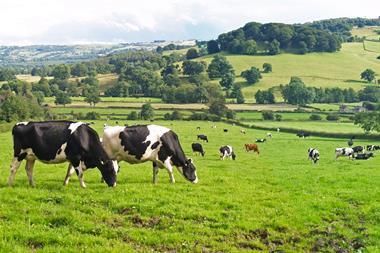
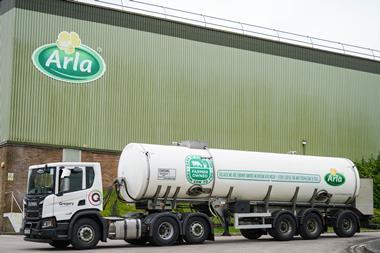
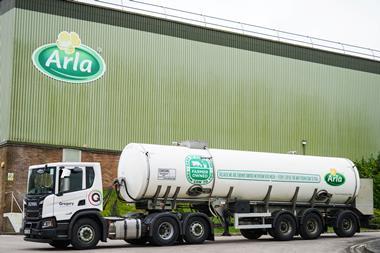
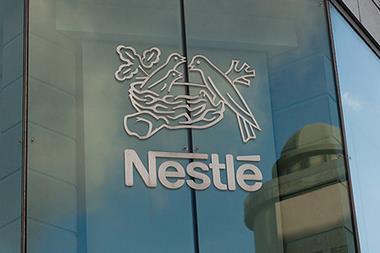
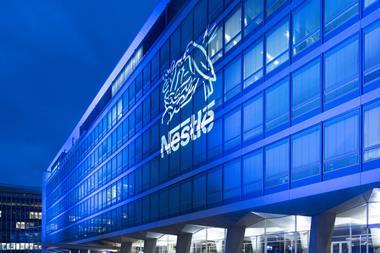







No comments yet